
Our reports : Property Perspective
Fixed rate or variable rate, which to choose?
November 28, 2024 Transcription
In this video: Economic uncertainty | Monetary policy | Real estate market | Mortgage rates
Real estate as part of estate planning
September 25, 2024 Transcription
In this video: Rate cuts | Inflation | Estate planning | Property transfer
Protect your financing
July 16th, 2024 Transcription
In this video: Inflation | Employment | Real estate market | Loan insurance
What are the steps to selling your property?
May 28th, 2024 Transcription
In this video: Anticipating rate cuts | Housing affordability | Selling your property
Search
article(s)
-
 How to help your child become a homeowner09 June 2025
How to help your child become a homeowner09 June 2025 -
 How much does a move cost?22 May 2025
How much does a move cost?22 May 2025 -
 A guide to becoming a condo owner22 April 2025
A guide to becoming a condo owner22 April 2025 -
 Empty nest syndrome: Moving after retirement14 April 2025
Empty nest syndrome: Moving after retirement14 April 2025 -
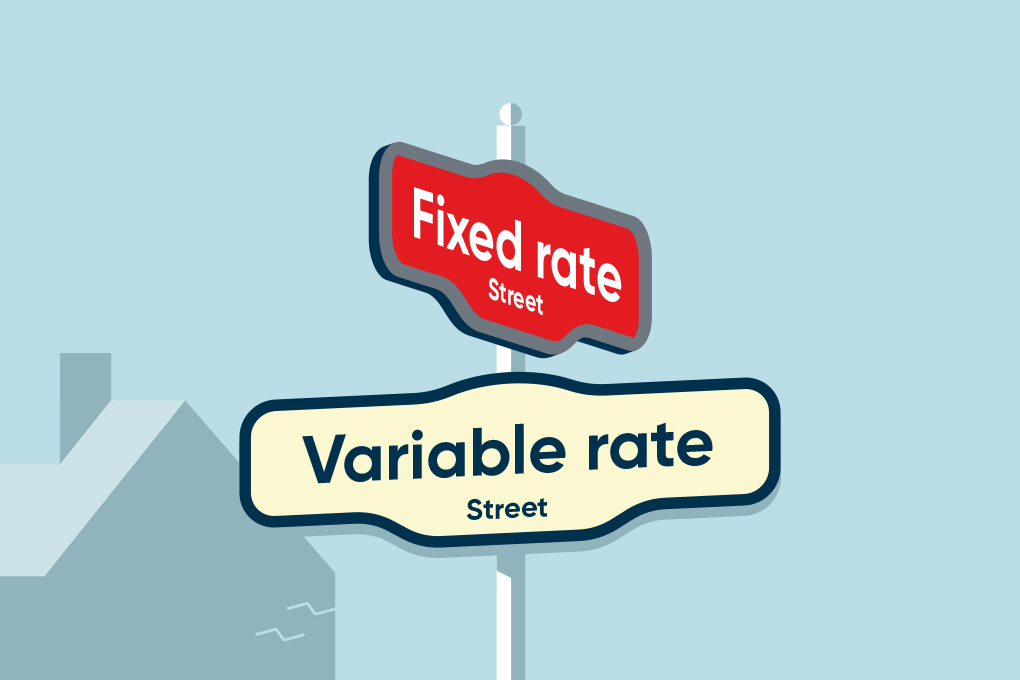 Should I choose a fixed-rate or variable-rate mortgage?11 April 2025
Should I choose a fixed-rate or variable-rate mortgage?11 April 2025 -
 Beyond the Price Tag: Understanding the True Cost of Homeownership17 March 2025
Beyond the Price Tag: Understanding the True Cost of Homeownership17 March 2025 -
 Home renovation grants in Canada: Aid and eligibility requirements17 March 2025
Home renovation grants in Canada: Aid and eligibility requirements17 March 2025 -
 Home renovation tax credits: What you need to know17 March 2025
Home renovation tax credits: What you need to know17 March 2025 -
 Seven Tips to Properly Manage a Condo Association05 March 2025
Seven Tips to Properly Manage a Condo Association05 March 2025 -
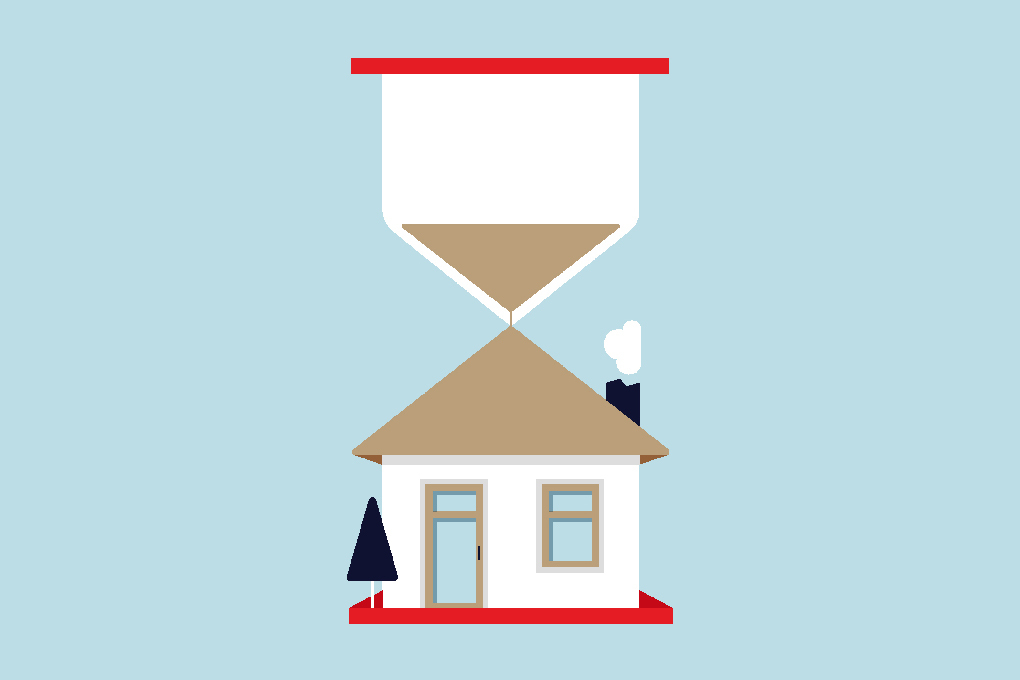 Is paying down my mortgage faster a good idea?26 February 2025
Is paying down my mortgage faster a good idea?26 February 2025 -
 What’s the best amortization period for your loan?11 February 2025
What’s the best amortization period for your loan?11 February 2025 -
 Renewing your mortgage, step by step10 February 2025
Renewing your mortgage, step by step10 February 2025 -
 Annual fees associated with a home10 February 2025
Annual fees associated with a home10 February 2025 -
 Down payments: Our practical guide07 February 2025
Down payments: Our practical guide07 February 2025 -
 Buying a House on Your Own: Everything You Need to Know11 December 2024
Buying a House on Your Own: Everything You Need to Know11 December 2024 -
 What are mortgage life, disability and critical illness insurance?07 November 2024
What are mortgage life, disability and critical illness insurance?07 November 2024 -
 Make a Sound Investment in a Residential Rental Property24 July 2024
Make a Sound Investment in a Residential Rental Property24 July 2024 -
 How does the capital gain exemption for principal residences work?12 July 2024
How does the capital gain exemption for principal residences work?12 July 2024 -
 How to transfer real estate property during your lifetime?12 July 2024
How to transfer real estate property during your lifetime?12 July 2024 -
 7 steps to buying your first home05 July 2024
7 steps to buying your first home05 July 2024 -
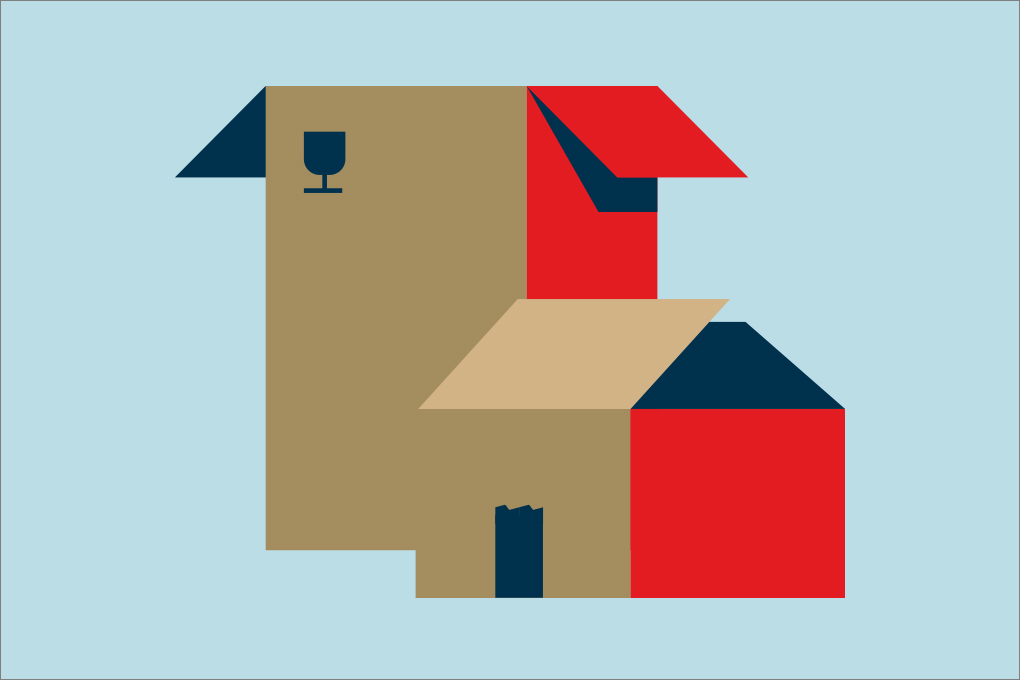 Renting vs. buying: How to make the right decision?04 June 2024
Renting vs. buying: How to make the right decision?04 June 2024 -
 What grants and incentives are available for first-time home buyers?21 March 2024
What grants and incentives are available for first-time home buyers?21 March 2024 -
How to buy a home with CMHC’s mortgage loan insurance?21 March 2024
-
 What’s the FHSA? And is it the right account for me?20 March 2024
What’s the FHSA? And is it the right account for me?20 March 2024 -
 What are my home renovation financing options?14 August 2023
What are my home renovation financing options?14 August 2023 -
 How does home equity line of credit work?14 August 2023
How does home equity line of credit work?14 August 2023 -
 How much should you budget for a second home?26 July 2023
How much should you budget for a second home?26 July 2023 -
 What is a collateral mortgage?05 July 2023
What is a collateral mortgage?05 July 2023 -
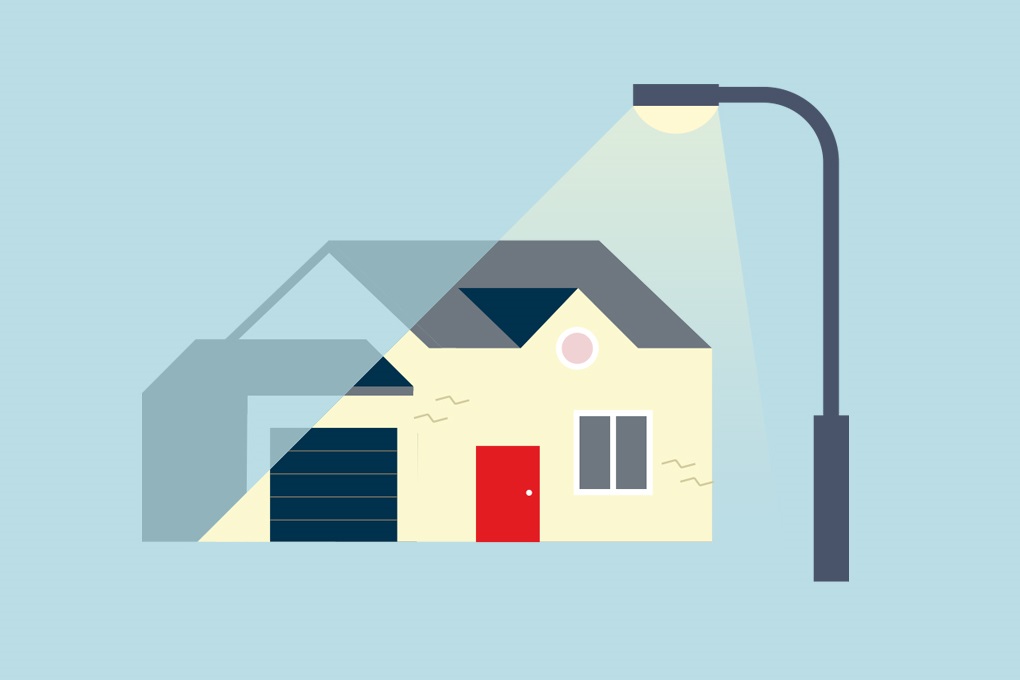 Mortgage terminology you need to know when buying a home10 May 2023
Mortgage terminology you need to know when buying a home10 May 2023 -
 A guide to buying your first home in Canada21 March 2023
A guide to buying your first home in Canada21 March 2023 -
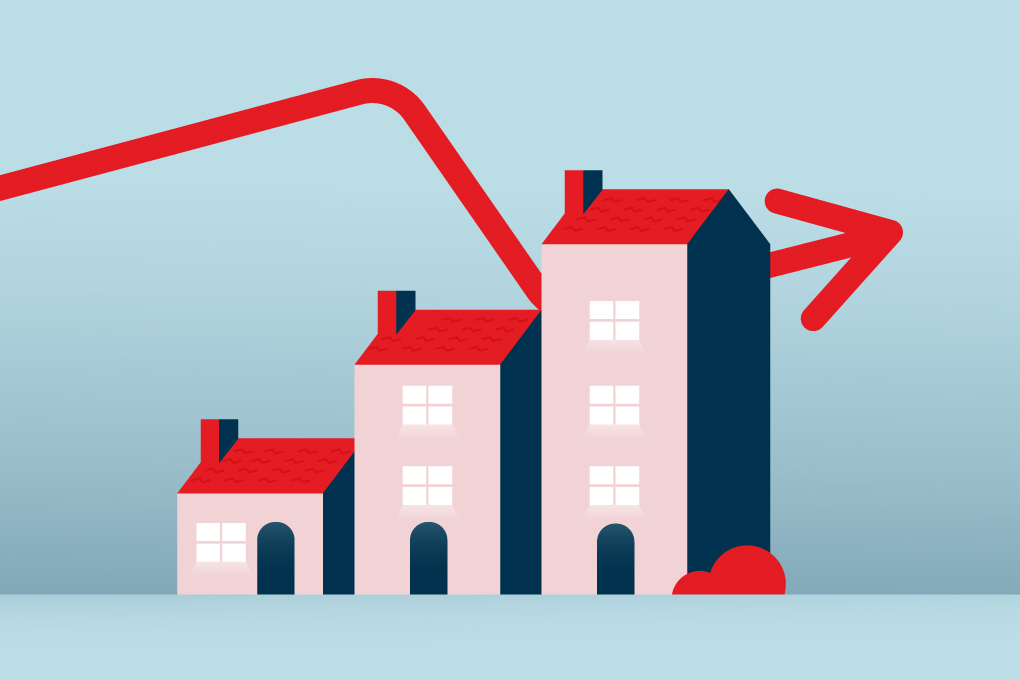 Market volatility: What should you do?10 March 2023
Market volatility: What should you do?10 March 2023 -
 Buying a home abroad: What you need to know16 January 2023
Buying a home abroad: What you need to know16 January 2023 -
 9 fees to consider when buying a home05 December 2022
9 fees to consider when buying a home05 December 2022 -
 Mortgage refinancing: why should you refinance your home?31 October 2022
Mortgage refinancing: why should you refinance your home?31 October 2022 -
 Condo fees: What you need to know05 August 2022
Condo fees: What you need to know05 August 2022 -
 Understanding the declaration of co-ownership27 July 2022
Understanding the declaration of co-ownership27 July 2022 -
 Divided co-ownership and undivided co-ownership: Key differences12 July 2022
Divided co-ownership and undivided co-ownership: Key differences12 July 2022 -
 How much does an inground pool actually cost?27 June 2022
How much does an inground pool actually cost?27 June 2022 -
 Is it a good idea to renew your mortgage early?31 May 2022
Is it a good idea to renew your mortgage early?31 May 2022 -
 7 things to know before making an offer to purchase02 February 2022
7 things to know before making an offer to purchase02 February 2022 -
 These five trends will drive real estate markets this year26 August 2021
These five trends will drive real estate markets this year26 August 2021 -
 How do you calculate the profit you’ll earn on rental property income?08 June 2021
How do you calculate the profit you’ll earn on rental property income?08 June 2021 -
 How to make a home renovation budget01 June 2021
How to make a home renovation budget01 June 2021 -
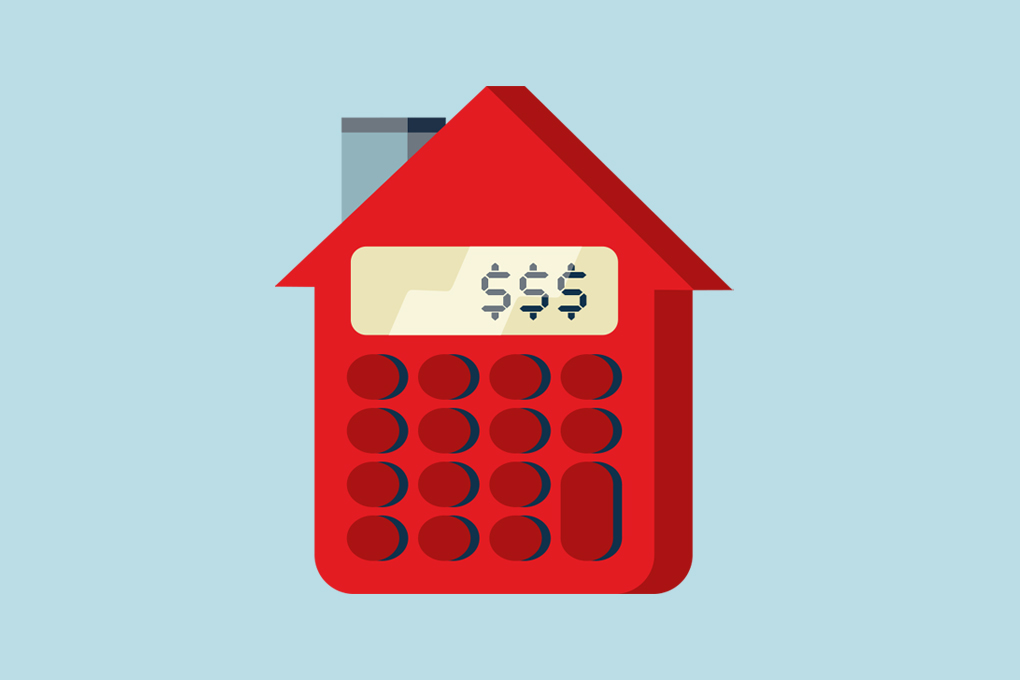 What’s your borrowing capacity and how can you prove it with a mortgage pre-approval?24 March 2021
What’s your borrowing capacity and how can you prove it with a mortgage pre-approval?24 March 2021 -
 Why you need to do a home inspection before buying22 March 2021
Why you need to do a home inspection before buying22 March 2021 -
 What do you need to know before buying multi-family real estate?19 March 2021
What do you need to know before buying multi-family real estate?19 March 2021 -
 What is a housing bubble?05 March 2021
What is a housing bubble?05 March 2021 -
 Everything you need to know before choosing your real-estate broker14 September 2020
Everything you need to know before choosing your real-estate broker14 September 2020 -
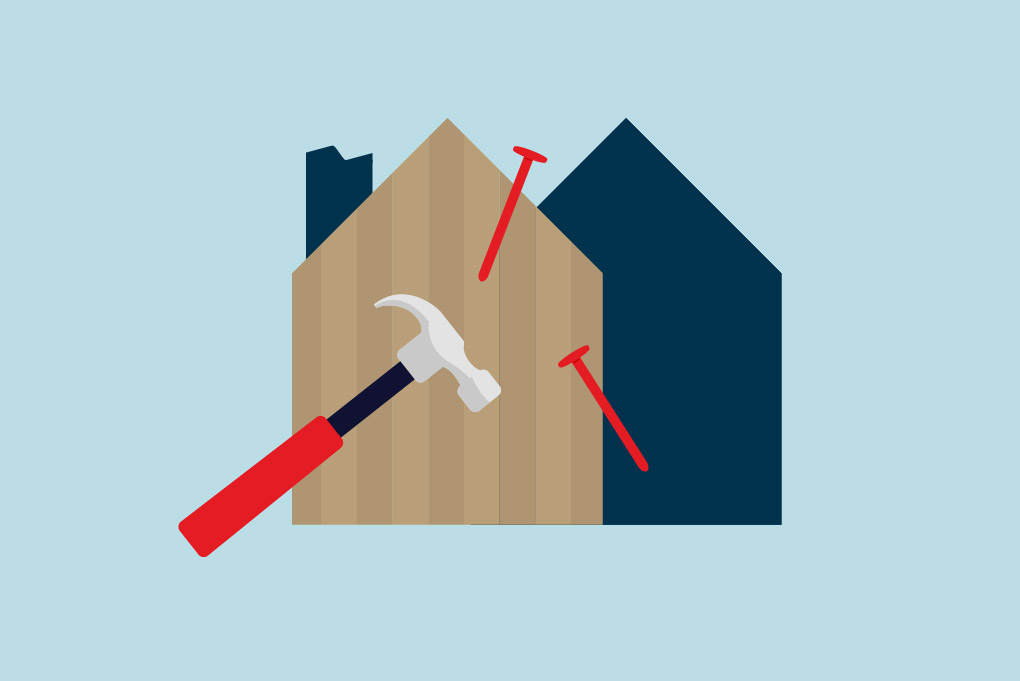 Steps to consider before building your own home11 August 2020
Steps to consider before building your own home11 August 2020 -
 How to Sell Your House Quickly27 June 2019
How to Sell Your House Quickly27 June 2019 -
 What is your Guarantee in Case of a Hidden Defect?17 May 2019
What is your Guarantee in Case of a Hidden Defect?17 May 2019 -
 Budgeting for first-time homebuyers15 March 2019
Budgeting for first-time homebuyers15 March 2019 -
 Selling your house: How to find the right price04 November 2018
Selling your house: How to find the right price04 November 2018 -
 Paying for your house in cash: A good strategy?04 November 2018
Paying for your house in cash: A good strategy?04 November 2018 -
 How Long Should it Take to pay off a Mortgage?04 November 2018
How Long Should it Take to pay off a Mortgage?04 November 2018 -
 What to keep in mind when buying a pre-construction or model home04 November 2018
What to keep in mind when buying a pre-construction or model home04 November 2018 -
 Best home renovations to increase your property value04 November 2018
Best home renovations to increase your property value04 November 2018 -
 10 Tips for Low-Cost Kitchen Renovations01 November 2018
10 Tips for Low-Cost Kitchen Renovations01 November 2018 -
 Is refinancing your mortgage a good idea?31 October 2018
Is refinancing your mortgage a good idea?31 October 2018 -
 Pellet stoves: What are the advantages?31 October 2018
Pellet stoves: What are the advantages?31 October 2018 -
 Worry-free guide to buying or building a brand-new home13 May 2018
Worry-free guide to buying or building a brand-new home13 May 2018 -
 How to estimate a home value?25 April 2018
How to estimate a home value?25 April 2018 -
 Cottage: Rent or buy?05 October 2017
Cottage: Rent or buy?05 October 2017 -
 Prepare your house for winter, and save!18 September 2017
Prepare your house for winter, and save!18 September 2017 -
 Renting out your cottage: Maximize the upside of your investment10 August 2017
Renting out your cottage: Maximize the upside of your investment10 August 2017 -
 The home equity line of credit: a practical product to be used with caution09 May 2017
The home equity line of credit: a practical product to be used with caution09 May 2017 -
 Real Estate: The Risks We Often Forget To Consider Before Buying15 March 2017
Real Estate: The Risks We Often Forget To Consider Before Buying15 March 2017 -
 Renovating for Resale: Do You Have What it Takes?09 February 2017
Renovating for Resale: Do You Have What it Takes?09 February 2017 -
 How to Pick the Next “hot” Neighbourhood09 February 2017
How to Pick the Next “hot” Neighbourhood09 February 2017 -
 7 reasons to work with a real estate agent26 January 2017
7 reasons to work with a real estate agent26 January 2017 -
 How to negotiate a property purchase19 January 2017
How to negotiate a property purchase19 January 2017 -
 Should you buy or rent your next home?06 November 2016
Should you buy or rent your next home?06 November 2016 -
 Taking the plunge into self-construction28 March 2016
Taking the plunge into self-construction28 March 2016 -
 The Amortization Concept18 August 2014
The Amortization Concept18 August 2014
Little details that matter
Hello everyone and welcome to this November 28th edition of Property Perspective. Today I have the pleasure to be with Matthieu Arseneau, hello Matthieu.
Hi Simon.
And with Andrée Desrosiers.
Hello Simon.
Hello Andrée. Our topic of the day, what's best for my mortgage, a fixed or a variable rate. But before we enter that interesting discussion with Andrée, let's talk with Matthieu about recent economic news that influence the real estate market. So Matthieu, a number of events have occurred since we last spoke, all of which have an impact on the economic outlook, obviously. First, what are the implication of the Republican sweep in the US presidential election for economic growth and interest rates?
Yes, this was a big event and there will be application for that for Canada over the next four years. Higher uncertainty, we saw that with the announcement of potential tariff on Canada. We'll see. But clearly, in my mind, the big event and this has implication for the housing market in Canada, particularly for interest rates. It's the fact that there could be much more fiscal stimulus South of the border given the promises of Trump during the campaign. As you can see on that chart, while the Congressional Budget Office was expecting roughly 6% of GDP deficit, which is already very high, it could be as high as 8% if all those promises are realized by Mr. Trump. So at the moment the Federal Reserve is trying to calm inflation in the US, calm the economy. There's government that could support growth over the next few years. So before the election, the Federal Reserve started to decline rates. They did already 75 basis points. But you can see that at the same time it didn't mean that longer term rates decline. In fact, it increased because of risk of tariffs and its implication for inflation because of stronger growth, though that's something we have to keep in mind. And the problem with that increase is given a global correlation in interest rates, when you have the largest economy in the world supporting the economy and having those rates it has an impact on rates in countries with economies not as strong as the US and has to cope with those increases. And that could be difficult for a couple of other economies in the world given the increase of those of those rates. So big implication and that has implications for Canada as well.
Very interesting Matthieu, so the ability to lower the prime rate in the US now looks more limited. What about Canada?
In Canada, so we saw that in fact for investors expectation for the policy rate in the US, it was expected at 3%. Now it's much more closer to 4% by the end of next year. So clearly investors revised their optimism for rate cuts in the US. In Canada, the situation is clearly different in our view when you look at the labour market here, I'm showing the jobless wait for the prime age workers, the 25-54, it has continued to increase over the past few months. And that's diverging with the US and it's now its highest since 2017. And we don't see stabilization over the next few months given the hiring intention of corporations. So for us that's a sign that the economy has cooled significantly and this is reflected in inflation. When you look at services, core services excluding shelter in the US, it's running at 4.4% because they didn't have that weakness that we got in Canada, it's so it's running at 1.3%. So clearly inflation is under control here. So yes, we expect the Bank of Canada to continue to decline rates. Prior to recent announcements, we were expecting policy rate as low as 2% by the end of next year. But given the transfer that was also announced by the federal government, it could lead to upwardly revise a bit. We'll see if it will be implemented. But clearly as you can see on that chart, while Bank of Canada is declining rates, 10 year rate is increasing and is essentially in its last two years average at this point. So not that much relief for long term rates. So that's something to keep in mind. But for that reason, perhaps it's another reason for the Canada to try to push down those rates by having short term rates very low. So that's our expectation at this time, OK.
Matthieu, the government has announced recently an additional break on population growth for the next three years. What are the implications of this new announcement on the real estate market?
We talked about it very often over the past few months. Housing shortage is still very acute in Canada. We see that in the rental market with rent still increasing at a tepid pace. Same thing for first time home buyers. It's where affordability is still a problem. So I think it's the good decision to calm down population growth. In fact, with the recent announcement about the declining non permanent resident to 5% of population over a 2 year. Reducing permanent resident temporarily, that will lead for— when you look at the five year period, when we look in 2028, the pace for the next 5 years will be similar to what we had prior to the pandemic level, much more sustainable and much more in line with our capacity to welcome. So, I think it's a good decision at this point given housing shortage. And we have to keep in mind newcomers have problems to integrate the labour market in the current context. So let's fix that situation and get back to normal after this three-year period of slow growth and we will be able to get back to the model we had that was benefiting the Canadian economy prior to the pandemic.
So finally good news. Thank you, Matthieu for your very interesting comments. Let's now discuss with Andrée, hello Andrée. In the context of the anticipated drop of the interest rate by the end of this year and obviously in 2025, should we go with a fixed rate or variable rate for our mortgage?
Very good questions Simon and indeed very relevant. The choice between a fixed rate and a variable rate for a mortgage depends on several factors, especially in the context of falling rates. Our risk tolerance, financial situation and short and mid economic outlook are key, you know, considerations to look at. We must first understand the bearish rate context, however, When the Bank of Canada lowers its prime rate, financial institutions typically adjust, you know, their mortgage rates in response to that downsize. Variable rates will generally follow primary fluctuations and become particularly advantageous in the short term. Fixed rates, although often higher than variable rates at the time of subscription, offer protection against potential future increases. We must however remember that they usually follow the interest rate on long term bonds and not the Bank of Canada prime rate. Therefore, a quarter point drop in the prime rate does not mean that fixed rate will fall by the same amount.
OK. We must therefore understand this context carefully before making our decision. You're right, Andrée. Many people assume that when there's a drop in the prime rate, all rates fluctuate in the same way. However, as we have just seen, that isn't the case since different rates are influenced by different factors. With that in mind, Andrée, what are the advantages of one or the other?
Yeah. If we look first, you know, at the variable rate, you should consider that rate if you believe that interest rates will continue to decline or stay low for an extended period of time. You can also choose the variable rate if you're comfortable with some level of risk and can handle or afford, you know, potential payment increases if rates rise. Also if you want to benefit from lower penalties, if you decide to pay off your mortgage early or switch lenders. Also, some variable rates loans offer the option to switch to a fixed rate if rates increase. On the other hand, you should consider, you know, a fixed rate if you prefer stability and want to avoid uncertainty, if you think rates might rise in the midterm and again, if your budget cannot accommodate sudden increases in monthly payments.
So once again, Andrée, the choice does not automatically go towards one or the other. Even if we are in the context of falling rates. As you mentioned, we must make sure to take other elements into account in our decision. You are very right Simon. And we must also not forget that some lenders offer mixed rate mortgages, you know, part fixed, part variables. So this approach allows you to balance the advantages of both options and reducing risk while still benefiting partially from falling rates. So in summary, you know in a falling rate environment, a variable rate may seem more advantageous in the short term, but it remains a bet on future rate trends. If you're comfortable with some uncertainty, a variable rate could maximize your savings. However, if peace of mind is your priority, a fixed rate is the safer choice. It all depends like usual on your financial profile and financial goals. To help you in your choice as usual, do not hesitate to consider or consult a mortgage specialist to assess your personal situation and provide you the right advice for that choice.
Thank you Andrée for sharing your insights. As you suggested, having a discussion with a mortgage specialist will help make the right decision. There's no point about that. So thank you all for watching and join us again very soon for our next edition of Property Perspective.
Hello everyone, and welcome to the September 25th edition of Property Perspective. Today I have the pleasure to be with Matthieu Arseneau.
Hi Simon.
Hello Matthieu.
And with Veronique Corriveau, hello Veronique. Our topic of the day real estate and estate planning. But before we go into that interesting discussion with Veronique, um, let's talk with Matthieu about recent economic news that influence the real estate market. Matthieu, while the Bank of Canada slowly lowered its policy rate over the summer, announcing cuts of 25 basis points, the Federal Reserve, I believe, surprised the economist by announcing a cut of no less than 50 basis points in the first announcement in September. What pace of cut can we expect from the Bank of Canada now that the Fed has entered the dance.
Yes, Simon that was a surprising one to that the Fed is going with the 50 basis point with the start of. So in this easing cycle that we are getting into, clearly it opens the door for the Bank of Canada to do more. If the if the Fed hadn't declined rates, it can have an impact when you decline rates on currency, pushing it down and ultimately lead to inflation. So when both central banks are going in the same direction, there's no impact on that front. And that opened the door for the Bank of Canada to go ahead perhaps with and I hope will be inspired by that kind of move. So increasing maybe 50 basis point cuts in the next meeting. Let's hope they will go in that direction. Clearly when we are looking at the inflation data a big milestone in August with the data that came out inflation at 2% on an annual basis, that's the goal of the Central Bank. So that was really good news. And if you exclude mortgage interest costs, we know the Central Bank is mainly responsible of that increase for that component. So if you exclude that component, we are only 1.2%. So for us clearly rates at those restrictive levels, it's not a good idea in the short term and they should decline rates faster over the next couple of meetings to bring back inflation rates much more neutral in the coming months.
Finally good news.
Good news on interest rate front, yeah.
Matthieu, we saw that controlling inflation has not come without economic cost, as evidenced by the rising unemployment rate. How do you assess the economic health of the labour market recently?
Exactly. It's not magic. Inflation has moderated because there's economic weakness. And when we look at the unemployment rate, in fact, it continued to increase during the summer and it's now at 6.6%. Not that high on historical basis, but still higher than it was prior to the pandemic. But there's not that much layoff at this point. It's much more hiring freeze on the macro perspective with corporations not hiring and a big increase in population. So as a result, it's the segment of population who tried to enter the labour market that are the most impacted at this point. If we look at the unemployment rate for people at the younger ones and recent immigrants, in fact, the cumulative increase since 2022 is as large as what we experienced during the global financial crisis of 2008, 2009. So for those segments of population is comparable to a recession at this point. So, and my concern Simon is the fact that job vacancy rates so are declining very fast. So that does not bode well for hiring in the coming months. In fact, it's the lowest since 2016, 2017 for those segments of population. So it's a, it's a warning for the Central Bank. Perhaps interest rates at those current levels are too high for the health of the labour market. As I recall unemployment rate at 6.6%, that was the level back in 2017 and rates were at 0.5% versus 4.25% at this point. So yes, I'm not saying that they should go there, but perhaps between 2.5% and 3%, very soon, that could be a good idea so we won't have too much damage on the labour market.
OK, remains to be seen. Matthieu, last question, what do you think of the government's latest announcement about raising the ceiling of insured mortgages from $1M to $1.5M and also giving first time buyers the option of repaying their loans over 30 years versus 25 years? Is it a good solution to the affordability challenges? We discussed a lot this affordability challenge over the past few months. For the first measure, the increase of the ceiling, we won't we don't expect that much impact because most of the transactions are way below this this threshold. So that's for this measure. For the other one, that could have material impact on the market, we made some calculations, and you can see the amounts are a bit different depending on the province, but just a general picture. For the same house, in fact, if you increase the amortization from 25 to 30 years, you have a decline of payment of 9% on a monthly basis. And if you maintain the same, the same payment, you can buy a house 10% higher in terms of price. So that gives you a leeway. But the big question here is, is it more affordable when you pay your mortgage for a longer period? So that's the first question. And if this option became very popular at some point, there could be an adjustment in prices given this increase in purchasing power of first-time home buyers and it will reverse the initial intentions. So that's, that's the tricky part. No evident solution with that kind of measure.
Alright Matthieu, thank you very much for your very, as usual, interesting comments. Thank you. Let's now discuss with Veronique, hello Veronique.
Hello.
About the real estate as part of the estate planning process, many of us put off these important decisions thinking that they are either too complex or not necessary. Yet when the time comes, navigating the legal and also emotional aspect of passing down property down can feel overwhelming. Veronique, a notary of extensive experience is here to shed light on the basics and help us take the first step toward thoughtful thinking. To start, can you please explain why having a will is so important, especially when real estate is involved?
Yeah, it's important to have a will to ensure that we do not leave our wishes to chance. Having a will allows the testator to decide for himself who will inherit his property and to choose the person or the people who will administrate the property in the process of liquidating an estate. For example, in the case of common law partners, if you die without a will, your partner could find himself co-owner of the building with your legal heirs. It's not perfect.
You could say that. Véronique, one of the key aspects of estate planning is the transfer, obviously, of ownership after someone passes away. Can you quickly walk us through the process of transferring real estate ownership from a deceased person to their heirs?
When you inherit real estate, the liquidator of the estate must transfer the title of the property. This is what we call in legal language the "declaration of transmission". By this act, the succession transfers the property right to the heirs, so the new owner of the building. It is a myth that we often have to deconstruct that the transfer does not take place automatically in the will. This act formalizes everything.
OK. Finally, Véronique, what specific considerations should heirs be aware of when inheriting real estate are there some challenges, pitfalls that they should be prepared for?
I can give you some examples. We can think of the co-ownership of real estate. For example, in this situation we should think about how they will administer the property together. Sometimes we can see some family dynamics in this kind of situation. We can also think of bequests of a building to minor children. If the bequest was made with or without a protection mechanism. This situation can complicate the administration of the child's property, and we have to think for the tax aspect too. It can bring us for example, a lack of liquidity when we put heirs in an unknown situation for the for the taxes.
You're right, so important to consider. So thank you Véronique for sharing your insights today. Estate planning, especially when it involves a real estate as we just saw, can be overwhelming at times. But as we discussed, taking the time to plan ahead can make a world of difference for your loved ones. We hope today's conversation has helped clarify the process of estate planning and real estate transfers and don't hesitate to discuss that important topic with your advisor. So thank you all for watching and see you in the next weeks for your next edition of Property Perspective. Thank you.
Hello everyone and welcome to this July 16th edition of Property Perspective. Today, I have the pleasure to be with Matthieu Arseneau. Hello, Matthieu.
Hi Simon.
And my good friend, Peter Thompson. Hi Peter.
Hi Simon.
Today, the topic of the day: the importance of loan insurance. But before we enter that discussion with Peter, let's talk with Matthieu about recent economic news that influence the real estate market. Matthieu, The Bank of Canada cut interest rates at the beginning of June, and since then, core inflation data has been less favorable than the previous months. Do you think that the Central Bank regrets having cut rates?
I hope they do not regret in fact, because yes, before they made that decision, there was impressive progress in core inflation.., very low inflation in the first four months of the year. Yes, there has been a bounce back in May, A bit too strong in June, but it's important not to overreact for the monthly volatility. When you look over the past six months and that's the chart I'm showing for current inflation. So when you remove the most volatile components each month, you get 2.2 inflation annualized over that periods. And so it's really close to the 2% target of the central bank. Clearly in our view, the widespread inflation problem is solved in Canada. And you can see that with the number of categories rising above this 2% target at just 23, that's significantly below the 2022 peak and below the historical average. So yes, for us, inflation is a problem that is fixed in Canada and it's not surprising given the economic backdrop in fact. Even in the first two quarters of 2024, we have growth between 1.5 and 2% so far, which is usually great growth for Canada. But given the population growth, it's very much as growth and below the potential of the economy. So, in such a context, no, I hope they do not regret and in fact we expect a rate cuts, further rate cuts in July given this economic backdrop.
Matthieu, we saw that the labour market is showing many signs of slowing, which should obviously help contain inflation over the coming months. What are your thoughts on that?
In fact, given the economic backdrop, it's not surprising to see the unemployment rate rising over the past few quarters. And it was the case in June with a 2-tick increase. In fact, we got a thing, we got a stagnation in employment, but with 100,000 population growth, that kind of gap, we just see that in recession historically. So that was a huge gap. So leading to this increase in the unemployment rate. And when you look since 2022, this kind of hiring freeze that we are experiencing, on the macro perspective, clearly the people try to enter for the first time in the labour market, recent immigrants, people, the youngest one, people age group (15-24), we see a significant rise in the unemployment rate, which are at their highest level since 2014. If you exclude the pandemic and for recent immigrants, the increase is as large as what we observed during the global financial crisis for the magnitude. So, that's worrisome so far and we don't expect improvement in the short term given that labour shortage is a story of the past at this point with only 15% of corporations indicating that they are experiencing those labour shortages. That's the survey made by the Bank of Canada. With only that proportion at 15%, we have only seen this during the last two recessions. So that's very low. And we don't expect a hiring spree over the next few months. Perhaps that hiring spree will continue. So we expect unemployment rate to continue to rise. In such a context, yes, we expect a rate cut in July and further rate cuts down the road. Over the next year, we expect rates to decline by a further 175 basis points. We expect rates to stabilize around 3% by the end of next year.
OK, that's a good news. And Matthieu, as you just mentioned, with interest rates falling, but population growth still very strong, what can we expect in the real estate sector in the next, in the next months?
In fact, these two factors usually typically support the housing markets. So and with the rate cuts we got in June, we saw rebound in a slight, but a rebound in home sales at the national level and in the three largest markets. So Vancouver, Toronto and Montreal experience a pickup of activity. It remains low level of sales at this point. But as you can see on this chart with that kind of level of sales, active listings are increasing, which is good news to bring supply in the market for people who try to buy. So there's more options. So yes, strong population growth, lower rates in the coming months, but at the same time less favorable labour market we saw especially for the younger one. And we have to keep in mind that affordability remains an issue in this country. So, perhaps yes, still increasing sales over the next few months, but perhaps a slight rebound rather than this really strong labour market given this context.
OK, Thank you, Matthieu for your very interesting comments as usual. Now, let's discuss with Peter about loan insurance. Peter, as you know, for most people, buying a property is probably the biggest financial commitment in their lives, especially when you're first-time buyers, right? Often they invested all their savings into this purchase. When you think about it, there are certain risks to be a homeowner. Can you give us Peter, some, advice on how to protect this major commitment?
Yes, absolutely Simon. And I think you put it really well. There are some important risks. It's such a great opportunity and exciting, especially for first-time homeowner to, you know, to have your new home. But with the mortgage come some risks as well. And when it comes to health or death risks associated with the mortgage, there is what we call loan insurance, some people call credit protection insurance. And it really exists to address those risks related to health, or in the worst case, death. And there's three types of coverages that come with loan insurance: disability insurance, critical illness insurance and death insurance or life insurance. And essentially disability, the way to think of it is if you have an accident, for example, which may keep you from working full time and as a result, you're, not getting 100% of your income as you maybe would otherwise, that obviously will put a squeeze on your ability to be able to make your mortgage payment. Sometimes people have a group insurance which helps cover a part of their income, but generally it doesn't cover 100% of the income. So it's important to recognize that and to look at that aspect. And disability insurance comes to make up for that gap, if you will, to ensure that you're able to make your mortgage payments on a timely basis. And it just takes another stress off your mind as you're working on your health and getting back your health. The second type of coverage that is offered through the loan insurance is critical illness insurance. And these are three types of situations which are considered here. You're talking about a cancer diagnosis, a stroke or a heart attack. Those are the typically the three critical illnesses that are addressed, either that protection and when you have that kind of diagnosis, of course is very dramatic type of situation. Oftentimes in order to address the health issue, you may have to go through an extended period of rehabilitation. You may need special treatments. Oftentimes the treatments aren't covered under the public plans and so on. So it becomes a pretty significant financial burden. So you have all these unexpected or unintended expenses added to the fact that maybe you're not able to work normally and you have to take some time off work. So the, the critical illness coverage really once again comes and makes up for that, that gap that may exist on the financial things just to make your life easier so that you can concentrate on getting better once again. So that's the whole critical illness coverage. And finally, the death coverage that is the worst scenario. Or let's say, for example, you have a couple who own a home and they have a couple of children, one of the people of the couple passes away. And that can put obviously from the most beyond the most important, you know, hardship that you have to go through in the mourning process, you have to go through. You don't want to add to that the financial burden that goes along with it, that maybe just having one income makes it very difficult to support a mortgage. And in the worst kind of scenario, you have a family which is no longer able to support their mortgage payments and as a result have to sell a home, move into an apartment with kids and so on. So you're kind of amplifying what is already a very difficult situation. And what is common with all of these three coverages is they really do exist to enable you to focus on your health, on your family, on what's important without having that added pressure of how am I going to make my mortgage payment? How am I going to support that when you're already going through a very difficult life event? So these are important coverages that are available through loan insurance.
Absolutely, right, Peter. That's really important that when an unfortunate event occurs, you want to maintain your lifestyle, your regular routine that you just mentioned that exactly what the good the good coverage can help you do. right? I'm sure your teams hear from clients every week who are going through difficult times and file a claim to get help. Can you give us any examples that Peter, where insurance really made a difference?
Yes, and I think that's really well put, Simon. The whole claims process, of course, when somebody is living one of these experiences, it's just so difficult. So everything are clean team does is so important and it really does require a special kind of person to be able to adequately serve customers when they're in that kind of situation. So the whole claims process is very, very important in terms of what we do. That's the reason we exist. Having said that, the process at the very beginning, the advice that we give to customers to explain to them the risks that they're exposed to and different ways that they can cover those risks or mitigate those risks is just as important that advice that's given at the very start of the process. And I have a couple of examples I think that illustrate the importance of that. The 1st is, we have an advisor in a branch met with the customer and that customer had some concerns about how am I going to include this protection that how am I going to make it fit in my budget. Money is a bit tighter. I'm not sure I can make it work. Should I get it? Should I not get it? And the advisor in the branch was able to help that customer find a way to make it fit. And at the end of the day, that same customer went ahead and took the protection, a couple years later, came back and told the adviser that she had just received a cancer diagnosis and was going to have to be dealing with that for the coming months. Also inform the advisor that she had just separated from her spouse and was now having to support two kids on her own. So you can imagine the financial pressures just to stress that this customer had to live through. But, had this coverage, this critical illness coverage which kicked in, which was able to support her financially and make a huge impact just to alleviate that part of the stress that she had just taken on with this recent diagnosis. So at least the financial burden, what it wasn't what it would have been had she not had that coverage. So that illustrates, I think really well one type of situation which is fairly common. Another one which was quite dramatic is, we had a situation where we have a couple of friends who went out fishing one day and unfortunately the worst you can imagine did happen. Both individuals passed away. The first of those of those gentlemen had gone out a few months prior and gotten protection for his mortgage such that his family was able to remain in the home that they lived in with the kids. The wife and kids were able to remain in that home and not have that financial burden to deal with. Over and above obviously the mourning of having lost the spouse. Unfortunately, the other partner in this story, the other Fisher in this story did not have the protection. And the result was that the financial burden was too much for the remaining spouse and that couple to support. They could no longer make the mortgage payments and therefore had to sell the house, move into an apartment. So you're just kind of amplifying once again, a very difficult situation with an added financial burden and something that's already very difficult. So I think those sorts of cases and unfortunately, as you said, we have all sorts of stories that we hear on a fairly regular basis that just are good demonstrations of the importance of that protection and making sure that you've thought of these things ahead of time.
Peter that makes you think about the importance of protecting yourself. Peter you mentioned “budget”. I like to hear more from you on that. The past few years, as you know have been a real game changer for Canadian owned. Prices have gone to the roof, interest rate have skyrocketed. So our client mortgage payments are higher than ever, right. What would you tell clients who say they don't need or they think they can afford to protect themselves when they taking out or renewing an existing loan?
Absolutely, yeah. And that's really important. So you're taking out a mortgage or you're renewing, your rate is no longer what it was five years ago. There's a big jump in the payments. So that is especially these past couple of years with the impact of interest rates and so on has become an increasing topic of conversation. And we're often asked what do you say to that. So I think that's probably one of the most common questions that we get. And really what we try to, to sensitize customers to is to just be aware that if already things are tight financially with an increased rate and a mortgage renewal and the monthly payments and so on. If already the situation is tight, try to imagine the situation if you did have a disability that prevented you from having your full regular salary for say 6, 12,18 months. What would happen financially? Would you be able to make your mortgage payments and so on? Or what about a critical illness? If something like that happened and, and money is already tight, how will you manage? And oftentimes what our advisors will be able to help the customer find solutions to for sure, it does require some tightening the belt, finding ways to make some adjustments on a monthly basis. Sometimes it means depriving yourself of certain things. But you will be able to find the right balance for you with a good advisor who can help you out in that regard to find that balance so that you're comfortable with everything, both your lifestyle and the protection you have and just being prepared for anything that might come your way in the in the years ahead.
Thank you Peter for your advice and concrete explanation. What's important is to take the time to discuss, as Peter mentioned, loan insurance with your financial advisor and make the right decision in full knowledge of the facts according to your personal situation and needs. The ultimate goal is to make sure that you take the steps that will give you Peace of Mind. So thank you all for watching and see you again for our next edition of Property Perspective.
Good morning, Simon.
Our topic of the day, what are the steps of selling your house? But before to try that to answer that interesting question, let's discuss with Matthieu about recent economic news that influence the real estate market. Matthieu, it's been almost a year since the Bank of Canada held the interest rate at its highest level since 2001. Matthieu, the million-dollar question, is it the time now to cut interest rates?
I think we're there for - Yeah, Simon - that's the good news this morning. I think we will get first rate cut this summer. Most importantly, when you look at economic data that came out over the past few months, particularly when you look at inflation numbers, there has been significant improvement. When you look at the core measure, the average of the two measures that the central bank is tracking, CPI trim, CPI median, it's running over the past three months on an annualized basis at 1.6%, so below the 2% target of the central bank. And when you look at the number of categories that are running above the 2% threshold, it's only 27, essentially in line with the historical average and way below the 48 component that we saw at the worst of this inflation crisis. So significant improvement that bodes well for rate cuts. And we have to keep in mind that it's not like immaculate disinflation. It's really because the Canadian economy has cooled that we are getting this moderation in inflation. In fact, when you look at the unemployment rate, it has increased significantly since 2022. It's now back slightly above its pre pandemic level. It's not a disastrous labour market. It's much more a hiring freeze from the private sector. But people who are trying to join the labour market, it's more difficult for them when you look at, for example, unemployment rate that is at its highest since 2016 and essentially the same thing for recent immigrants. So yes, the economy has calmed down, it looks in our view that we need those rate cuts to stabilize the labour market. So, we will not get too much damage in this fight against inflation. So yes, this summer, if it's not June, what I would like to see, it's going to be July and that's our baseline forecast at this point.
OK, very good news, Matthieu. However, we know that the Bank of Canada tends not to strike too far from the Federal Reserve and we heard recently doubts that are beginning to surface that it's going to be hard for them to cut short term rates. Do you think, in your mind, is it realistic that the Bank of Canada go at it alone this summer?
And that's the question that we get frequently. In fact, the main reason, if you look historically, you can see that the policy rate has been very correlated in Canada and the US. Of course, those two economies are experiencing the same shock. We know that exports represent 30% of GDP going to the US. So, it's normal that those two economies are very correlated. But you can see that at some point there's gap because an economy is doing a bit better than the other one. And you can see that prior to the global financial crisis, we saw a gap in policy rates of one percentage point and even 2 percentage points during the 90s. That's not what we expect at this point, but it will be given the economic backdrop. It will be totally neutral in our view to see the central bank declining rates before the Fed and even cutting rates a bit more this side of the border we’re expecting 75 basis point cut at by the end of this year rather than in the US only 50 basis points. So yes, they can go alone in our view, but they have to manage that gap because ultimately it has an impact on the currency. And if they decline rates too much versus the US, Canadian dollar will depreciate, and it will lead to import inflation in fact. So that's the risk and that's the reason why they will have to manage that. But clearly we have to look at domestic conditions and when you look at those conditions Canada versus the US, you can see that core inflation as measured in Canada, as I mentioned at 1.6% over the past three months, it's 4% in the US. So, they are not ready to give the same level of oxygen we think south of the border. And you can see that the unemployment is barely up in the US while it's increasing if you can't in Canada. Same definition here. The unemployment rate is at its highest since 2017 with the same definition as in the US. So clearly those two economies needs a different path in our view at this point.
And Matthieu, we've read the recently that the government has announced measures to counter the housing crisis, both in terms of immigration and a very ambitious plan to build nearly 4 million new homes by 2031. In your mind, Matthieu, is it possible to improve the housing situation in the short term?
I think it's going to be a long-term project. Clearly we have to adjust our expectation perhaps a 5-year project. There has been announcement about reducing population growth over the next three years that will be more easy to put in place, but it takes time to put that in place. So far this year, populations continue to increase at a brisk pace. For construction, the goal is to build 550,000 homes a year starting next year. We have never been able to build more than - it has been always less than 300,000 a year so far. So that's a significant increase. And I don't know if we have the capacity. The number of construction workers to be able to increase construction by this magnitude. But as you can see, we have to keep in mind all measures that are put in place to fix this situation is welcome. And as you can see for the monthly mortgage payment on median home price for first time home buyer, it's a difficult situation at this point. It has improved a bit last quarter with the decline in rates and the moderation in home prices. But even if we get those rate cuts in the coming months home prices should be resilient because of this housing shortage. So we've talked a lot about first time home buyers at this point, people getting this payment shock. Which is on average 20% in 2024 for people who need to renew their mortgage. But also, the renters who are impacting by this, housing shortage. And as you can see on a year over year basis, rents are still increasing at 8% at this point, the IRS since the early 80s. So, we have to keep to keep that in mind at this point. In fact, they look a bit more vulnerable. And when you look at renters, when you look at delinquencies for credit cards, so borrowers without a mortgage, their delinquencies are higher, already higher than its pre pandemic level, while mortgage holders for mortgage holders it increases, but it's it remains significantly below its pre pandemic level. So, we have to keep that in mind. That's a big challenge for the Canadian economy and we have to put all the measures in place to fix that situation, which is causing a lot of problem at this point.
All right, thank you, Matthieu for your very good comments as usual. Let's now discuss with Andrée to try to answer our question of the day. Andrée, in previous edition of Property Perspective, we've been talking about activities mainly related to the purchase of the property. Although we know that it's a very important step in everyone's financial journey, I would like this time to focus more on its counterpart, the sale of the property.
With great pleasure, Simon. You are so right. We generally discuss the purchase of a property, and we often forget about the sale. In fact, for many people, over the course of their life, they will purchase more than one property. Many will buy 2, three or even more for all kinds of reasons. It could be for the family, which is growing because we decide, you know, to live with someone or even to separate, for a new job and many other reasons.
So, you're right, Andrée, there are all kind of reasons that leads us to considering changing homes to do this. What are the steps to follow to ensure that the sale of our home is done without too many surprises? Let's say that.
Yeah, to ensure that everything you know is done in the greatest possible harmony, I would say I would like to propose a ten-step process that you can follow. OK. The first one you've got to do a property appraisal. And to do that, you can get an accurate assessment of the market value of your property by getting the help of a real estate agent or a professional appraiser for this step. Once you've got the price, you have to prepare your property. Ensure that it is presentable and attractive to potential buyers. This may involve minor repairs, cleaning, and decluttering. I would say to highlight its best features. Next, choose a real estate agent. If you decide to work with one, find one with experience in your area and one with a good reputation. The agent will guide you through the selling process. Next, setting the asking price. Discuss with your real estate agent to set a competitive price for your property taking into account the local market, the comparables and the overall condition of your property. Then you will have to market the sale of your house. You know in the market and your agent will help you implement a marketing plan to attract potential buyers and this may includes online listings, virtual tours, guided tours, etc. Then you will have to negotiate the offer you will receive and as buyers begin to make offers, your agent will guide you through the negotiation process to ensure that the best price and terms are possible for you. Once a satisfactory offer is presented to you, then you and the buyer will sign the purchase offer which will highlight the terms and condition of the transaction. For example you know the sale price, the date of possession etc. Then, in these conditions. the buyer may ask for the inspection of the house and this will confirm to him that everything is in order and that there are no potential issues or even defects. After that you may need you know to do some little repairs or adjust the price accordingly. Then your buyer will have to finalize with his financial institution a mortgage approval and get back to you with that in order to confirm that he can it afford and pay for the property. Once you've got all that, the conditions of the purchase agreement have been met, you and your buyer will sign closing documents and legally transfer ownership of the property to the buyer. That is the ten step process that I was suggesting, but there may be another - an 11th one. OK. You may also have to produce a new certificate of location if the one you have does not include the improvements made to the property since your acquisition or if it's more than 10 years old.
Well, Andre, that's not that easy to sell a house. You just mentioned that we can use a real estate agent for this to help us. However, some people decide to do to do it themselves. Why would they choose that option?
You know, you're right. You know it is indeed possible, Simon, to sell a property without asking for a real estate broker or agent. The main reason for doing so is to avoid the brokerage fee, which you know may go from 4 to 5% of the sale price. This commission, you know is used to compensate the agent for all the work he is doing in supporting you in the sale of your house. Although it is possible to do this, you must possess in-depth knowledge of brokerage rules, the real estate market in your area. You must be available for all the calls, visits, be able to effectively promote your property on the market and above all, not be emotional because you know we always see our house better than it is. Therefore, unless you are a real estate expert, I recommend that you use the services of a trusted real estate agent to save yourself a lot of trouble and ensure a transaction at a fair price.
Thank you, Andrée for your great explanation and advice and thank you all for watching this morning and join us again very soon for next edition of Property Perspective.
© National Bank of Canada, 2023. Any reproduction, in whole or in part, is strictly prohibited without the prior written consent of National Bank of Canada.
Prohibited use of this content
The content published on this platform is protected under the copyright laws of Canada and other countries, as applicable. The copyright to this content may be owned by National Bank of Canada or its partners. You may not reproduce, redistribute, communicate or make use of this content, in whole or in part, without the written consent of National Bank.
Content provided for information purposes only
This content is provided for information purposes only and is subject to change. It does not create any legal or contractual obligation for National Bank. It may not apply in your situation. The Bank and its partners will not be liable for any damages you may incur if you use this content as advice for you or your business. To obtain advice, consult your National Bank advisor, your financial planner or another professional (accountant, tax specialist, lawyer, etc.).
No responsibility for external content and opinions expressed (if applicable)
National Bank accepts no responsibility for the content of external websites linked or referred to and cannot be held liable for any damages resulting from their use.
Opinions expressed by interviewees do not necessarily reflect the opinions of National Bank or its subsidiaries.
Categories
-
All featured articles
-
Bank security & cybersecurity
-
Banking
-
Budget
-
Career
-
Credit and debt management
-
Economic Impact
-
Education: resources and advice
-
Financial advice for immigrating and settling in Canada
-
Insurance
-
Managing your inheritance and assets
-
Retirement
-
Savings and investment
-
Taxes and income
-
Thought Leadership and economic trends


